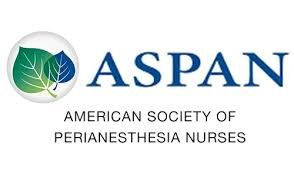The PeriAnesthesia Nurse Awareness Week is celebrated this year from February 4-10 and is a time when nurses in this specialty are recognized for the work they do. The week also allows an opportunity for education about the specialty and the type of care these nurses deliver.
The American Society of PeriAnesthesia Nurses (ASPAN) is an important resource for nurses who work in the perianesthesia realm and those who are considering this specialty. Many people know perianesthesia nurses as part of the essential surgical team, but they are also intricately involved in pain management procedures that involve anesthesia.
Perianesthesia nurses are present during all aspects of anesthesia care. They work with patients during pre- and post-operative care. They also monitor and advocate for patients during procedures. As a perianesthesia nurse, one must remain vigilant for any signs of difficulty in the patient, so nurses are constantly monitoring vital signs and breathing.
Because of the careful and meticulous preoperative care, these nurses also know how to monitor visually to make sure the patient is tolerating the procedure well. If there are any problems, nurses are there. When patients are recovering from a procedure, the nurse continues to monitor their recovery as the anesthesia wears off. They are a professional medical presence and a calming personal presence as well.
As with other specialties, certification is important for perianesthesia nurses as the challenges of medications, patient health, and procedure can make for a complex situation. All ages of patients undergo anesthesia, so nurses need to have training and experience with every age from newborns to the very elderly.
Conditions can make people more frail and the potential for an allergy or a bad reaction to anesthesia is always present. Remaining educated with the latest information and evidence-based practices is critical in this specialty.
As a perianesthesia nurse, time is especially important during patient interactions. They have a short window of time to assess a patient, put that person at ease, and find a common thread or conversation point that can be used during postop care. Often perianesthesia nurses will try to find an interesting detail about the patient and use that as a conversation point to help orient patients after procedures.
Some perianesthesia nurses work in pain management, helping patients and monitoring them closely as they receive different anesthesia, some of which is not entirely sedating, for pain. In this case, they act as advocates as patients manage the procedures and the effects of the anesthesia.
If you’re a perianesthesia nurse, celebrate all you do this week. If you have perianesthesia nurses on your team, give them recognition for the essential role they play in your organization and in patients’ lives.
- Is the FNP Program Right for You? - April 24, 2024
- WOC Nurses Week Highlights Specialty - April 16, 2024
- Honoring Radiology Nurses Day on April 12 - April 12, 2024



